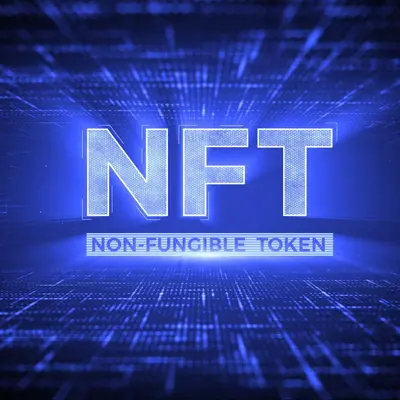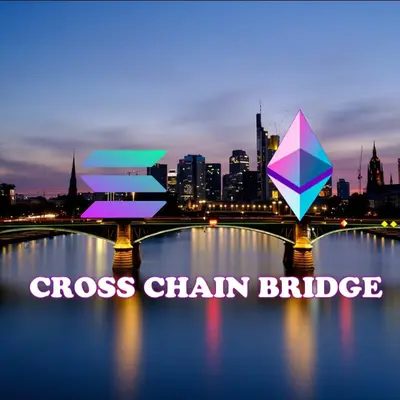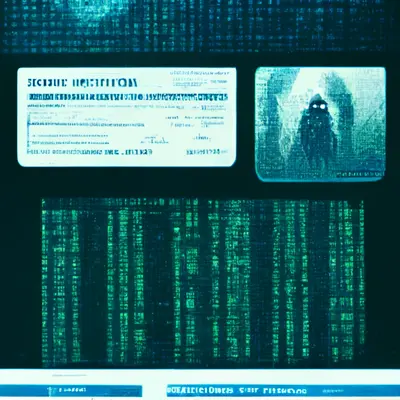What is Smart Contract? How smart contracts work
What is Smart Contract? How do smart contracts work? What are their advantages and disadvantages? Find out right here!
Dex, NFTs, Marketplace,... These are all applications created by smart contracts (or smart contracts) on the blockchain. In today's article, we will learn what a Smart Contract is, its advantages and disadvantages as well as the applications of smart contracts in Crypto.

What is Smart Contract?
Smart Contracts (or Smart Contracts) are programs that run on the blockchain. A smart contract is like a digital contract that is enforced by a specific set of rules. These rules are predefined by computer code that all nodes in the network must copy and enforce.
In essence, Smart Contract is just a piece of code that runs on a distributed system (blockchain), allowing the creation of Permissionless protocols (ie without authorization). It means:
- Two parties to a contract can make commitments through the blockchain without having to know each other's identities or trust each other.
- They can ensure that if the conditions of the contract are not satisfied, the contract will not be enforced.
In addition, the use of smart contracts eliminates the need for intermediaries, which greatly reduces operational costs.

Each blockchain has a different smart contract implementation method, for example on Cosmos has WASM, Polkadot has ink!,... The most prominent of which is still Smart Contract running on Ethereum's virtual machine (Ethereum Virtual Machine - EVM).
How does Smart Contract work?
Simply put, Smart Contract acts like a deterministic program . Smart Contracts will execute a specific task in case certain conditions are satisfied. Therefore, a Smart Contract system usually follows "if…then..." statements.
On Ethereum, Smart Contracts are responsible for executing and managing the activities that take place on the blockchain when users (addresses) interact with each other. Any address that is not a smart contract is called an Externally Owned Account (EOA). Therefore, the smart contract will be controlled by the computer and the EOA controlled by the user .
Smart Contract Ethereum consists of a contract code and two public keys:
- The first public key is the one provided by the contract creator.
- The other key represents the contract itself, which acts as a unique digital identifier for each Smart Contract.
Smart Contracts are implemented via blockchain transactions and they are only activated when an Standalone Account (EOA) or other Smart Contracts call them. However, the first trigger is always from the EOA (user) side.
Pros & cons of Smart Contracts
Advantages
A smart contract is a set of programmable, highly customizable code that can be designed in a variety of ways to provide a wide range of services and solutions.
In addition, smart contracts are decentralized and self-executing programs, which increase transparency and reduce operational costs . If implemented properly, they can also increase operational efficiency and reduce administrative costs.
Defect
Smart Contract is based on the blockchain system, so it cannot be modified and interfered with . Once the Smart Contract is written, if you want to change it, the only way is to rewrite a new contract. Immutability is a great advantage, but in some cases can be a disadvantage.
For example:
When a decentralized autonomous organization ( DAO ) called "The DAO" was hacked in 2016, millions of ETH were stolen due to a flaw in their smart contract code.
Since their Smart Contract is immutable, developers cannot edit the code. This eventually led to a hard fork, creating Ethereum Classic and Ethereum .
Besides, Smart Contract is also a product from Blockchain, which Blockchain is not yet legally protected. So Smart Contract if an error occurs, users are not protected by the government.
In addition, there is some argument that centralized systems can also provide most of the solutions and functions that smart contracts offer. What is different, however, is that smart contracts run on a distributed peer-to-peer (P2P) network instead of on a centralized server.
Risks of Smart Contract
Smart Contracts are just pieces of code that run on a human-made Blockchain, they are not smart, they work the way the developer wrote them, not the way the developer thinks they should work. So Smart Contracts are still risky because the code is vulnerable to attacks and bugs.
Typically, there were a lot of hacks that happened in 2021, causing a lot of projects to suffer heavy damage. You can read more here.
In addition, the inability to modify the cons section is also something worth noting. If you unfortunately write down any terms, for example, the time to pay tokens of funds, teams, etc., it means you have to rewrite it from scratch.
Application of Smart Contract in Crypto
Essentially, most applications powered by centralized systems can be similarly designed and powered by smart contracts on the blockchain.
Smart Contracts allow developers to design many different use cases. For example: Cryptocurrency wallet to store Coin & Token, decentralized exchanges (DEX), games (gaming), NFT,...
Summary
So we have learned what a smart contract is, as well as some of the pros & cons and applications of smart contracts in Crypto. If you have other questions related to the above topic, please comment below so that FoxCryptoNews can help you right away!
Disclaimer : All information on the article is for sharing market experience only and should not be considered as investment advice. Crypto investment is a form of risky investment and should only be entered with capital that can be lost.
Oct 12, 2022

















